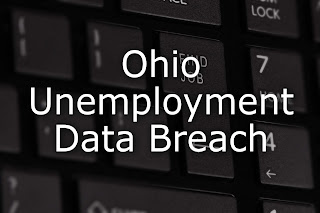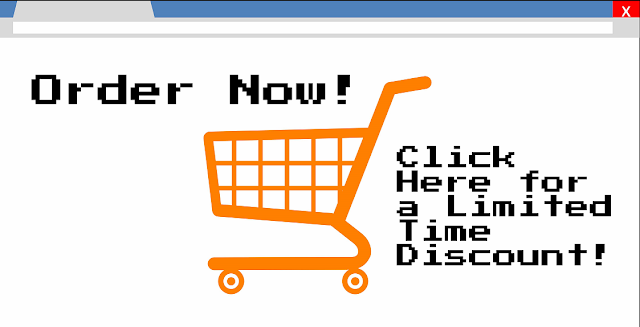Degrees Aren't Everything
Many aspiring cybersecurity professionals wonder if they need a specific cybersecurity degree to land their dream job. The good news is that you don't necessarily need one! While a cybersecurity degree can be advantageous, degrees in related fields such as computer science, information technology, or data science can serve as excellent foundations. Employers value the technical and problem-solving skills that these degrees provide.
Getting Started with Free Resources
Cybrary.it: Your Cybersecurity Training Hub
Cybrary.it is a goldmine of free cybersecurity resources. They offer a wide range of courses, from beginner to advanced levels, covering topics like ethical hacking, network security, and more. With hands-on labs and expert instructors, it's an excellent platform to build your skills.
Khan Academy: Foundational Knowledge
If you're looking to strengthen your mathematics and computer science fundamentals, Khan Academy is the perfect place. Brush up on your algebra, calculus, and programming skills, which are essential for understanding cybersecurity concepts.
Coursera: University-Quality Courses
Coursera offers free courses from top universities worldwide. You can find cybersecurity-related courses here as well. While some come with a fee for certification, auditing the courses allows you to access the content for free.
Practical Experience is Key
The cybersecurity field places a strong emphasis on practical experience. Therefore, in addition to theoretical knowledge, consider participating in Capture The Flag (CTF) challenges and setting up your own lab environment to practice your skills.
Remember that cybersecurity is a vast field, so don't rush. Take your time to explore different areas, such as network security, penetration testing, incident response, and more. Find what sparks your interest, and specialize accordingly.
As you venture further into the world of cybersecurity, I also want to introduce you to my cybersecurity books, which are available for free with a subscription to LeanPub. They delve into various aspects of cybersecurity, offering valuable insights and practical tips to help you navigate this dynamic field. Here are my books:
- "Cybersecurity Rules to Live By": An introductory guide to fundamental cybersecurity principles that every professional should know.
- "Death by Identity Theft": Uncover the secrets of identity theft and learn how to protect yourself and others from this pervasive threat.
- "Hacking of the Free": A guide to digital threats to our elections.
Embarking on a career in cybersecurity doesn't require a specific degree. With determination, the right resources, and practical experience, you can build a successful career in this dynamic and rewarding field. Remember to continuously update your knowledge and stay curious, as cybersecurity is ever-evolving.
Taking the Next Step - Your First Cybersecurity Job
Now that you've set your sights on a career in cybersecurity and equipped yourself with valuable knowledge, the next step is landing your first job. A great starting point for many newcomers to the field is a Helpdesk Technician role, which can serve as a launchpad for your cybersecurity journey. Let's explore how to find such a position and some useful resources to aid you in your quest.
1. Build a Strong Resume and Cover Letter
Before you start applying for jobs, ensure your resume highlights your relevant skills and certifications. Emphasize any coursework, projects, or personal initiatives related to cybersecurity, even if they weren't part of a formal job. Craft a compelling cover letter that expresses your passion for the field and your eagerness to learn and grow in a Helpdesk Technician role.
2. Leverage Job Search Websites
Several job search websites cater to entry-level IT positions, including Helpdesk Technician roles. Here are some popular ones:
Indeed (indeed.com): One of the largest job search engines with a wide range of IT job listings.
LinkedIn (linkedin.com/jobs): An excellent platform for job hunting, networking, and researching potential employers.
Dice (dice.com): Specializes in technology and IT job listings, making it a valuable resource for those entering the cybersecurity field.
Glassdoor (glassdoor.com): Offers job listings, company reviews, and salary information.
3. Explore Company Websites
Many organizations post job openings directly on their websites. Identify companies in your area or those you are interested in working for, and regularly check their careers pages for job postings.
4. Network, Network, Network
Networking is a powerful tool in job hunting. Attend local cybersecurity meetups, conferences, and webinars to connect with professionals in the field. Join online forums and groups related to cybersecurity on platforms like Reddit, LinkedIn, and Twitter. Engage in conversations, ask questions, and seek advice. Sometimes, job opportunities are shared directly within these communities.
5. Consider Internships and Entry-Level Positions
While you may have your sights set on a Helpdesk Technician role as your first job in cybersecurity, don't disregard internship opportunities or other entry-level positions, such as IT support or junior sysadmin roles. These can be stepping stones to the role you ultimately desire and provide valuable experience.
6. Tailor Your Applications
Customize your applications for each job you apply to. Highlight relevant skills and experience based on the specific requirements of the job posting. Mention any certifications or coursework that demonstrate your commitment to cybersecurity.
7. Prepare for Interviews
Once you start receiving interview invitations, prepare diligently. Research common interview questions for Helpdesk Technician roles and practice your responses. Showcase your problem-solving skills, technical knowledge, and willingness to learn during interviews.
8. Be Persistent and Patient
Job hunting can be challenging, especially when you're entering a competitive field like cybersecurity. Rejection is a part of the process, so don't be discouraged by setbacks. Keep refining your skills, expanding your network, and applying for relevant positions.
Useful Websites for Job Search
To make your job search easier, here are some websites where you can find Helpdesk Technician and entry-level IT positions:
Indeed: A comprehensive job search engine with a vast number of IT job listings.
LinkedIn Jobs: Leverage your professional network to discover job opportunities.
Dice: Focuses on tech and IT job listings, including entry-level positions.
Glassdoor: Provides job listings, company reviews, and salary information.
CareerBuilder: Offers a wide range of job listings, including IT roles.
Remember, landing your first job in cybersecurity may take time, but with persistence, continuous learning, and the right resources, you'll be well on your way to building a successful career in this dynamic and rewarding field.
Some Closing Thoughts
Cybersecurity can be a very rewarding career, but don't spend too much time staring at the computer screen and not enough time outside in the real world. Cybersecurity naturally attracts introverts, and believe it or not I am naturally one of them. The only way I've succeeded and advanced my career in cybersecurity has been by breaking outside of my comfort zone and actually talking with people. It has taken me years to build up the social skills I need to truly succeed. Strike up a conversation, push your own boundaries. And most importantly, don't forget to stop and enjoy life outside of the computer world once in a while.
I wish you the best with your cybersecurity career, and hope that you'll make an excellent addition to our much-needed workforce!
Ken is a cybersecurity professional with over 15 years experience. All opinions are his own, and do not reflect those of his employer or clients.













